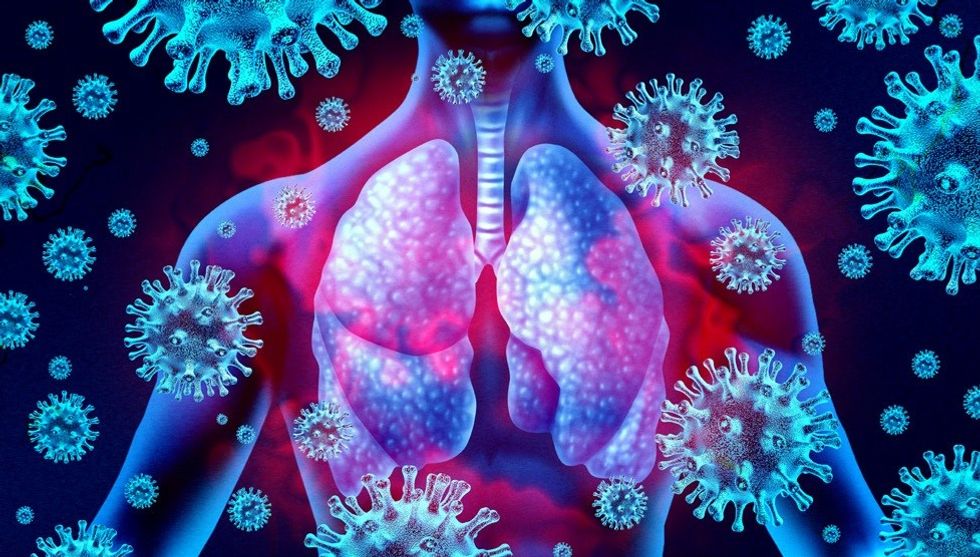Lung health expert Dr Alison Cook commends community pharmacy teams for providing a ‘lifeline’ for people living with various lung conditions…
For too long, people with lung conditions have seen a lack of progress in their treatment, diagnosis, and care. We know that one in five people will develop a lung condition in their lifetime, but respiratory disease continues to be an area where things are not improving fast enough to support the millions of people who need help.
In fact, every year, lung conditions account for 700,000 hospital admissions, and outcomes for lung disease have not improved in over a decade.
This is where community pharmacy comes in.
More than 1.6 million people visit a community pharmacy each day, and our local chemists can offer a wide range of services for people with lung disease. From ordering and collecting prescriptions to flu vaccinations, stop smoking services and inhaler technique checks, the potential of our local pharmacists to support people living with lung disease has never been clearer.
When the Taskforce for Lung Health-a collaboration of more than 30 different respiratory bodies, patients, charities and organisations looking to improve lung health in England – surveyed over 2,000 people with lung conditions on how they use their local pharmacies, we discovered that 95 per cent of people living with lung disease who use community pharmacies found the services they accessed valuable and essential, or something they ‘could not live without’.
This, alongside our wider findings, highlights just how much untapped potential our local pharmacies hold.

Raising awareness
People with lung conditions taking part in the Taskforce survey reflected on the fact that community pharmacy is often much easier to access than other forms of routine care.
According to our survey, three quarters (75 per cent) of people with lung disease who use community pharmacies value their services because they are close to home. Other reasons for valuing the service were convenient opening times (39 per cent), not requiring an appointment (48 per cent) and finding local chemists easier to access than a GP appointment (26 per cent).
But despite the strong understanding of the vital role pharmacies could play in their care, our survey found that people with lung conditions who use community pharmacies were unaware of, or not using crucial services which have the potential to drastically improve their wellbeing.
According to our findings, one in four people (23 per cent) were not aware of the full range of services available in community pharmacies. To ease the pressures faced by the NHS in the pandemic and beyond, it is important to raise awareness of the variety of services community pharmacies offer, encourage more people with lung conditions to make better use of community pharmacy services overall, and expand the range the range of services offered.
For example, inhaler technique checks are a crucial part of basic care for people with lung disease but are often missed or not carried out properly. Poor inhaler technique or incorrect use of inhalers can potentially risk life-threatening exacerbations or asthma attacks.
With nearly half (48 per cent) not using this service, and a quarter of those not using it saying they were unaware it was available, we think that there is a real opportunity to make this service more accessible and improve its uptake among people with lung disease.
Flu jabs are another vital service which community pharmacies offer. However, only one in four respondents (23 per cent) used the service. This suggests that increased uptake of the flu jab in local pharmacies could alleviate winter pressures on hospitals and the NHS as a whole.
Rebuilding trust
Perhaps unsurprisingly, our survey also showed that the pandemic has meant that more than a third of people with lung conditions (37 per cent), began to use pharmacies less than before, due to anxieties about catching the virus.
However, despite this, the majority of respondents stated that they would feel safer using the services if they believed the appropriate measures (e.g. social distancing), had been put in place.
Confidence in the safety of local pharmacies needs to be restored among users with lung conditions in the coming months, to ensure that they continue to play a crucial role in supporting people with lung disease.
People with lung conditions recognize the importance of community pharmacy as a lifeline for their care, but there is clearly still work to do in making the wide variety of services available known to everyone.
Whether it’s flu jabs or inhaler technique checks, the level of untapped resource available at our fingertips to support people with lung conditions and the NHS has never been clearer.
By far the most important change we need to see is an investment into integrating our pharmacies into NHS care pathways. Our local pharmacies play an important role in protecting people with lung conditions, and there are endless benefits to creating a more integrated system of care where people with lung conditions are made aware of, and feel encouraged to access vital services at their local pharmacy.
We have already seen the monumental impact local pharmacies can have with their crucial role in the Covid-19 vaccination effort-it is now vital that everyone is made aware of the wide variety of services pharmacies offer, and that further integration of local pharmacies into the NHS becomes a priority. This would not only better meet the needs of people with lung disease, but also reduce the pressures faced by the NHS during the pandemic and for years to come.
Dr Alison Cook is chair of the Taskforce for Lung Health.











![Potential Side Effects of Mounjaro [What You Need to Know]](https://www.pharmacy.biz/media-library/image.jpg?id=54516976&width=1245&height=700&quality=90&coordinates=0%2C29%2C0%2C29)






